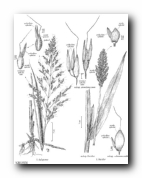

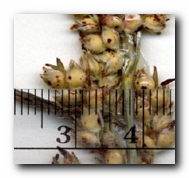
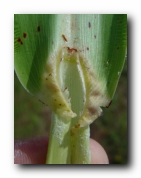
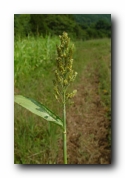
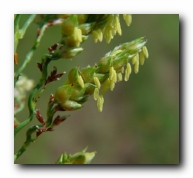
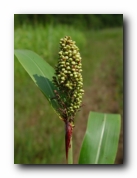
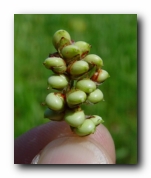
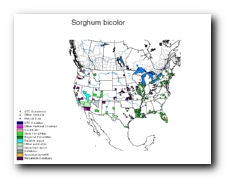
40" Rows:
Broadcast:
1 to 3 pounds pure live seed per acre
3 to 5 pounds pure live seed per acre
Sandy:
Loam:
Clay:
High
High
High
Habit: Perennial, in large tough bunches. Culms: 50-100 cm. tall, erect to spreading, simple. Blades: Elongate, flat, soon becoming involute, 5-35 cm. long, 1-3 mm. wide, sometimes sparingly hairy at the base, elsewhere somewhat rough. Sheaths: Shorter than the internodes, pilose at the throat. Ligule: Very short. Inflorescence: Panicle 10-40 cm. long, nearly half the height of the plant, when mature half to two thirds as wide as long, exserted or partly included, its branches and branchlets at length widely spreading, bearing spikelets aggregated along the outer half to two thirds. Spikelets: 1.5-2.5 mm. long, 1-flowered, awnless, on short pedicels, the lateral about as long as the spikelet rachilla disarticulating above the glumes. Glumes: Acute, glabrous, nerveless, the first about half as long as the second, commonly falling towards maturity, the second about as long as the lemma. Lemmas: Broadly oval, 1-nerved, about as long as the second glume. Palea: 2-nerved, about equaling the lemma, splitting between the strong nerves as the grain ripens. Fruit: Grain free from the lemma and readily dropping off. Habitat: Dry plains and river valleys, especially in alkaline soil. August-September. Use: A good forage or grazing grass in lowland and in alkali regions.
Special Notes: